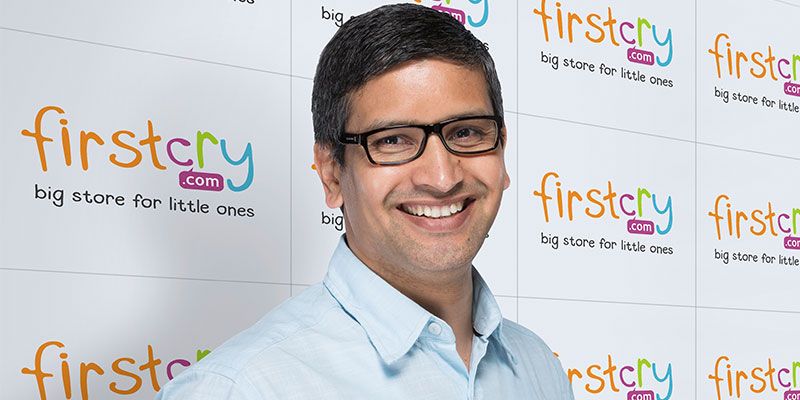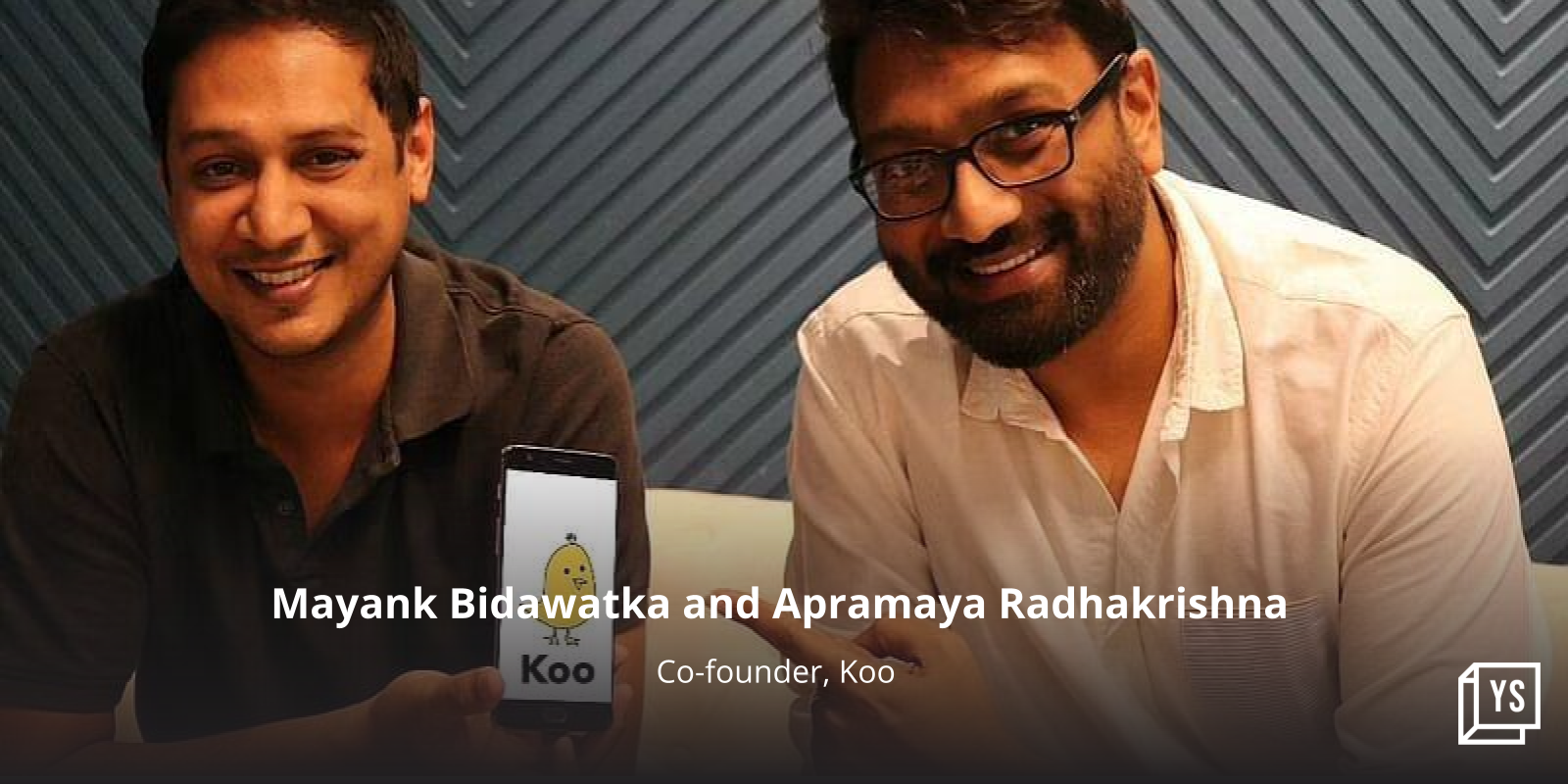
There are many skincare brands in the market targeting infants and children. However, dermatologists and skincare experts have been sounding the alarm about potential health risks, including skin allergies, rashes, and other adverse reactions. Most products contain dyes as well as chemicals, which have been associated with numerous health problems.
With so many products in the market, it can also be overwhelming for parents to navigate what works best for their little ones.
Addressing this problem head-on is Yellow Naturals, a skincare brand specialising in natural and organic products for children aged 4-12. The Gurugram-based startup is focused on safe and gentle skincare and hair care solutions for kids.
Founded by Pooja Dugar and Alok Nagpal in 2023, the idea to start up originated from Dugar’s now seven-year-old daughter.
“When my daughter turned 4, we were still using the same brand for her shampoo and body wash. As she started going outdoors, we noticed that the baby shampoo, while gentle, wasn’t sufficient anymore and left her hair dry. We tried to find brands and googled every corner of the internet to find nothing,” Dugar tells YourStory.
As parents, Dugar and Nagpal searched for safe and reliable products, and they encountered a dearth of options in India and even in the broader global market.
The founders surveyed 50 parents of similar-aged children and found that many were using baby products due to uncertainty, while some had switched to adult products or resorted to importing alternatives.
“Further research with dermatologists brought the need for hydrating children’s skincare, adding conditioning to shampoos, and using allergen-free fragrances, which many existing products lacked. That’s when we took the lead to create products for our own little one,” she adds.
Before founding Yellow Naturals, Dugar spent over 13 years in brand and lifestyle marketing. She co-founded Rock Castle Entertainment Un-Ltd, a marketing agency, along with Nagpal, where she oversaw marketing campaigns worth over Rs 175 crore for various brands.
Nagpal previously co-founded Noise, a wearable tech brand, and has 16 years of experience in marketing and operations.
Products infused with natural ingredients
According to the founders, the startup steers clear of harsh chemicals and toxins, prioritising the safety of children’s delicate skin.
With the help of a formulation expert, the nine-member team took nine months to create three products, which are currently manufactured in Himachal Pradesh.
Some of its products include daily cleanse shampoo + conditioner, body wash, and nail paints ranging from Rs 500 to Rs 1,000. The products are focused on babies (0-3 years) to pre-teens (15 years onwards).
Yellow Naturals also offers a makeup kit for kids, which is made from ingredients such as natural oils and butter, avoiding toxins, talc, and other chemicals. The kit consists of a box with a mirror, eyeshadow, blush, lip tints, balm, and nail paints.
The products are dermatologically tested and all fragrances are International Fragrance Association (IFRA) certified, Dugar says.
While there are brands like Johnson’s, Mamaearth, Mothercare, and Chicco in the market, Dugar says she observed the absence of a dedicated category for children’s personal care products in India, sandwiched between baby care and adult offerings.
“Despite many brands catering to babies, there was no single standout brand synonymous with safety,” Dugar explains.
“This gap in the market leaves parents searching for suitable products for their children in this age group,” she adds.
As young children are exposed to outdoor activities, the founder believes their skincare needs to evolve, and requires products that offer hydration, protection, and care.
“Unfortunately, this specific category of products catering to children aged three and above was sorely lacking in the market. However, parents still face the challenge of sorting through these options to find the ones that genuinely cater their changing needs,” she explains.
“To make this happen, we’ve made sure our products are sulphate-free and paraben-free, yet they still create a bubbly lather for an enjoyable bath time. Also, we've added scents that kids love, like chocolate or strawberry,” adds the founder.
Towards sustainability
The company uses 50% PCR bottles and aims to have 100% recyclable and compostable packaging by 2026.
“Many big brands market their products by highlighting trendy ingredients like oats or turmeric without explaining why these ingredients are necessary. They focus on the ‘superhero’ aspect of these ingredients rather than their actual benefits. This can be misleading, as these brands often prioritise marketing over safety,” Dugar explains.
Instead of just replicating formulas, the team spent over a year perfecting their products before they were launched in the market.
Surprisingly, the founder performed the first testing on her daughter. “Once we were confident about effectiveness and safety, we shared them with other children. During the development process, our daughter often gave us feedback, and we also tested the products ourselves,” she says.
Future plans
The startup is currently bootstrapped, with approximately 60% of its orders coming from South India. The brand officially launched online in November last year and is also available in retail stores like Gift Palace, Khan Market; Giggles and Glory, Gurugram, Toy Factory Ambience Mall and Maya Toys, Gurugram, and Leo Toys, DT Mega Mall.
According to Transparency Market Research, the global kids' personal care market is expected to reach $171.7 billion by 2031, expanding at a CAGR of 7.6% from 2022 to 2031.
Yellow Naturals aims to target parents, especially mothers, for the sale of its personal care products. However, the repeat orders depend on kids liking the products, which influences parents to buy again.
Yellow Naturals contributes 1% of its profit to Samarpan Foundation, a non-profit organisation dedicated to improving the lives of underprivileged children in India.
“We believe in giving back to those in need, which is why a portion of our profits is allocated to the Samarpan Foundation that focuses on children’s health, education, and well-being. Whether it’s providing essentials to underprivileged families or supporting medical research and treatment for paediatric illnesses, we want to make a difference in the lives of children everywhere,” Dugar explains.
The startup competes with the likes of Baby Dove, Cetaphil Baby, Mustela, and Aveeno Baby, which are well-known for their gentle skincare products for children.
The company has onboarded 3,000 customers to date. However, some challenges in the market, Dugar says, include a lack of awareness about children’s skincare and the high cost of retail establishments in India.
“Our plan is to focus on educating consumers about the benefits of using quality skincare products, affordable pricing and expanding availability through various distribution channels,” she says.
The brand’s flagship makeup kit has been selling offline in prominent gifting stores in Delhi NCR and Mumbai, with plans to expand to other cities and tie-ups with major distributors like Toys R Us.
“Our accelerated journey has just begun, but we are growing at 20% month-on-month. We plan to expand into the Middle East and European markets in the next 12-18 months. We also have new products coming soon in the personal care and natural makeup categories. Our main focus is to grow our presence in India through online platforms like , , , and ,” says Dugar.
Edited by Megha Reddy










































